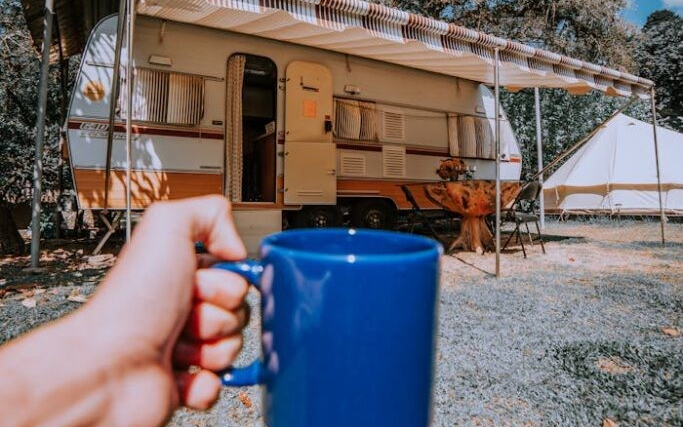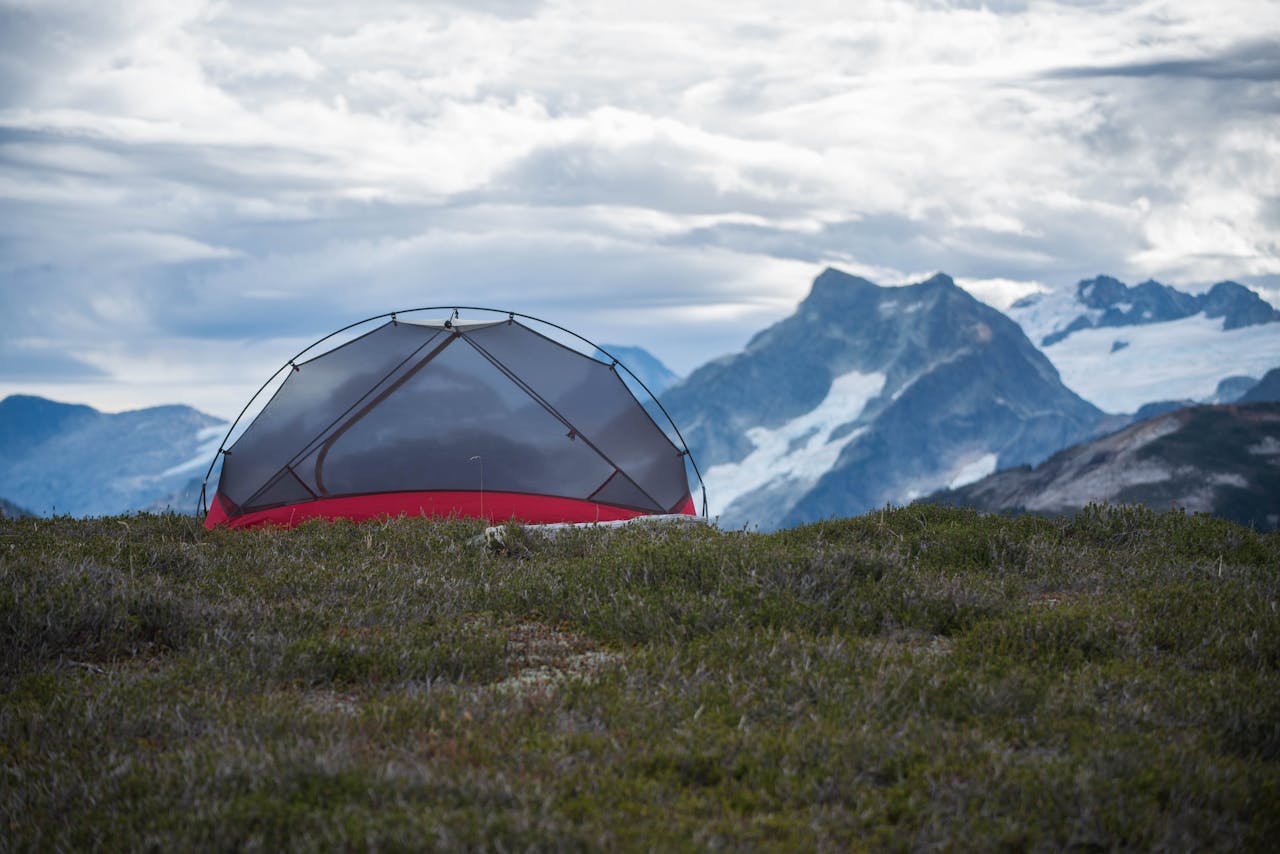If you’re looking for ways to spend time with your family, you’ve probably considered going camping. So get ready, because today we’re going to teach you what you need to know.
Finding a good spot to camp can be tricky, and if you don’t stick to some basic guidelines, your time in nature might not go as planned. It could really knock your motivation —or even worse— put you or your family at risk. That’s why we suggest checking out these 7 tips if you’re gearing up for a camping trip soon!
1. Evaluate the Terrain
This may seem like the most obvious step, but it’s clear that you need to consider factors such as the amount of rocks on the ground, slopes or uneven areas, the height of the grass, and the number of surrounding trees. A flat terrain is ideal for comfort, and being in a slightly elevated area can prevent rainwater from accumulating near your tent.
2. Stay Close to Water, but Not Too Close
Having an unlimited water source can make tasks like cooking, cleaning, and drinking much easier, but be careful! Remember the previous point—you need to protect yourself from potential flooding. Additionally, being too close to water can attract unwanted insects and animals.
3. Protect Yourself from the Weather (and Insects)
Taking wind gusts into account can help you create defenses, like securing your tent properly or finding a natural position that shields you from it. Finding shade is also beneficial, especially in arid climates. Make sure to equip yourself with a good repellent, and wear long sleeves; trust me, it will make your experience much more enjoyable.
4. Take Precautions Against Wild Animals
Be mindful of the smells you generate while cooking—cook away from your tent and store your food securely. Manage your trash properly, and educate yourself on the steps to take if you find yourself close to a wild animal. If you want to know more, you can read our article on animal prevention.
5. Ensure Safety
You should not only be cautious of wild animals but also consider avoiding areas with heavy branches that could fall on your tent. Steer clear of locations that could lead to accidents, such as cliffs or areas prone to landslides. Stay away from roads, as it’s important to avoid unexpected encounters with vehicles. Read more.
6. Stay Close to Services
Unless you’re planning to camp in remote areas, research how to reach emergency services in case you need them. You’ll likely also want to stay near sanitary facilities like bathrooms and showers.
7. Know the Regulations
It’s important to be aware of the rules in protected areas, as they are often very strict to preserve the environment. Don’t pollute, and choose a location where your natural impact will be minimal. Remember that preserving the surroundings is essential so that others in the future can enjoy the same experience as you.
Find a Private Area
I know the list says 7, but why not add an extra tip? This one is about finding an area where you can have your own personal space. Look for a spot that separates you from other campers’ tents. This will provide you with a more peaceful and enjoyable experience.
In summary, here are the 7 key points you should know before heading out for a camping trip:
- Evaluate the Terrain
- Stay Close to Water, but Not Too Close
- Protect Yourself from the Weather (and Insects)
- Take Precautions Against Wild Animals
- Ensure Safety
- Stay Close to Services
- Know the Regulations



